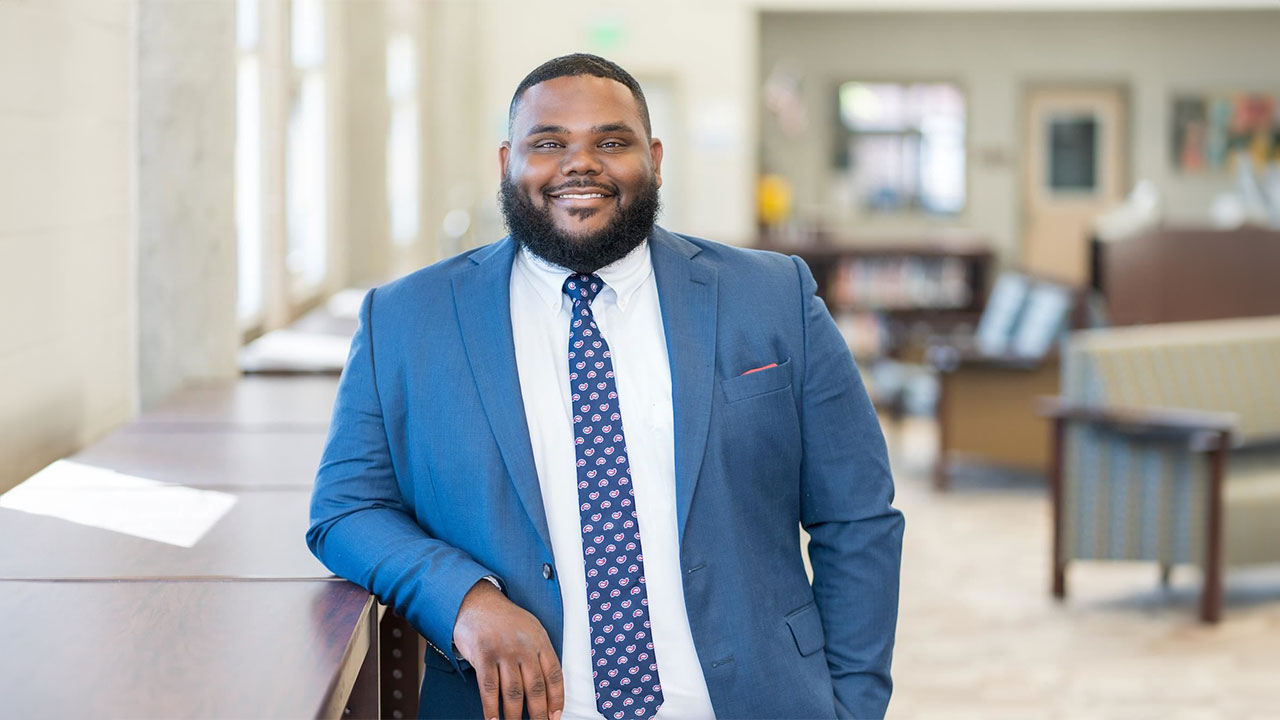content body

Auburn University’s College of Education has always been more than just a place to learn for Courtney Bass. It’s where Bass discovered his calling, built lifelong friendships and set the foundation for a career in education.
Now serving as assistant principal at Liberty Park Middle School in Vestavia Hills, Alabama, Bass remains connected to the university as a member of the College of Education’s ENGAGE (Educate, Network, Grow, Advocate, Give, Empower) Council, a new initiative focused on fostering alumni involvement and supporting the next generation of educators.
Bass’s journey began as an Auburn undergraduate unsure about his major. A work-study placement at a local elementary school quickly brought clarity.
“That opportunity showed me I was meant to be an educator,” he said. “Auburn, and especially the College of Education, gave me the experiences I needed, and I’ll always be grateful for that.”

Practical experience
Bass earned his Bachelor of Science degree in elementary education in 2014 and returned to Auburn to complete his master’s in educational leadership in 2019. Throughout both programs, Bass said the College of Education equipped him with real-world experience and practical knowledge that directly shaped his teaching and leadership.
“As an undergrad in the teacher preparation program, we were in classrooms constantly working with students, collaborating with teachers and learning what real teaching looked like,” he said. “It wasn’t just theory; it was hands-on experience. I worked one-on-one with students and learned how to adjust and grow in real time. That made a huge difference when I stepped into my own classroom. Later, when I returned to Auburn for my master’s in educational leadership, the program gave me the knowledge and skills I use every day as an administrator. It was preparation with real purpose.”
Among the many Auburn memories he holds dear—iconic football finishes, fraternity step shows and long nights with friends—one moment stands out. While working with a struggling student during his early field experience, the child finally met a benchmark and sprinted down the hallway to share the good news.
“I’ll never forget the joy on his face,” Bass said. “That moment is when it clicked for me. I knew I was called to teach.”
Bass spent six years in the classroom before stepping into school leadership. He credits Auburn’s faculty—specifically Dr. Octavia Tripp, Dr. Megan Burton, and Dr. Lynne Patrick—for challenging and supporting him along the way.

Grounded teaching
“They really brought the content to life,” he said. “Their teaching was grounded in real-world application, and they were invested in our success. They challenged us and supported us at the same time. They made the program feel meaningful and gave us the confidence to walk into schools ready to lead.”
Now through the ENGAGE Council, Bass is paying it forward.
“We’re in a time where teaching can be really tough, especially for new graduates,” he said. “I want them to know that we’re here for them. As alumni, we’ve been in their shoes, and we want to serve as a support system. The ENGAGE Council will create the space for that connection.”
Bass encourages education students to treat every field placement like an opportunity.
“Show up early, be prepared and give your best effort. People remember how you show up,” he said.
Proud of becoming an administrator before the age of 30 and serving on the inaugural Black Alumni Council, Bass continues to stay involved with the Auburn Family that helped shape him. And as he leads in his school and serves on university councils, his Auburn roots remain firmly planted.
“Auburn taught me that teaching isn’t just about delivering content,” he said. “It’s about caring for the whole child. Every course, every placement, every experience was grounded in that idea. That teaching still shapes how I lead and make decisions today.”




